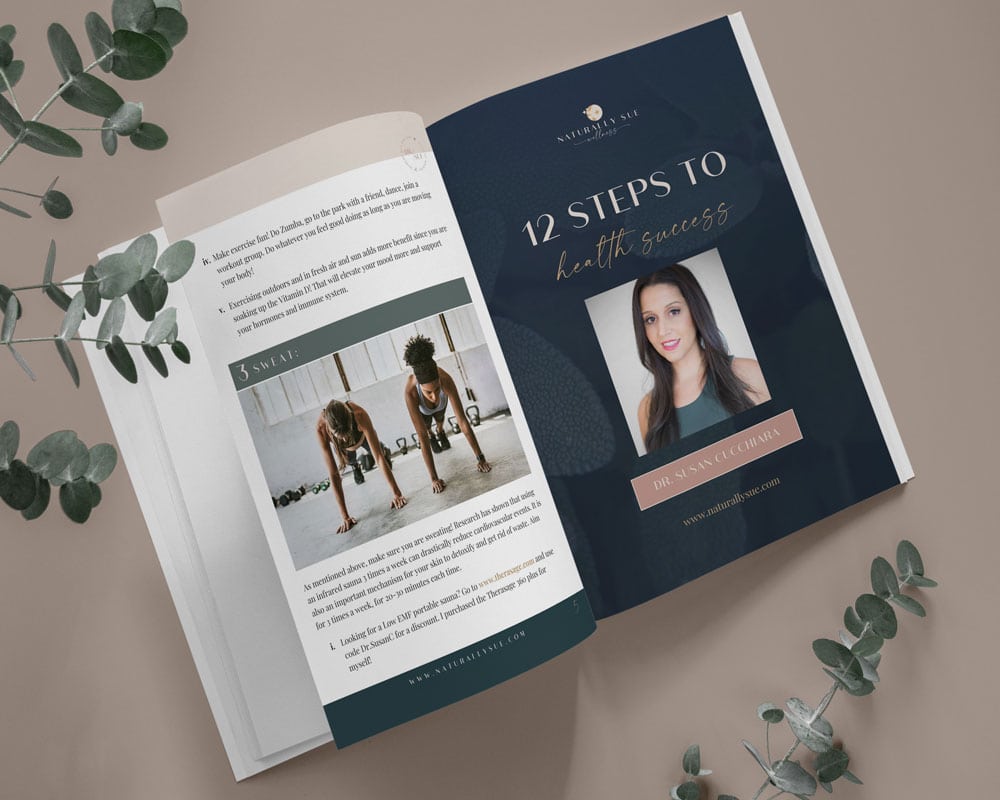UNDERSTANDING ANXIETY
Anxiety is a complex condition that can have both physical and psychological components. From a holistic medical perspective, anxiety involves the interplay between genetic, environmental, and lifestyle factors. Here are a few takeaways from a holistic viewpoint:
- Neurochemical Imbalance: Anxiety may be caused by an imbalance in neurotransmitters like serotonin, GABA, and norepinephrine. These chemicals play a crucial role in regulating mood, emotions, and the body’s stress response.
- Hormonal Factors: Hormonal imbalances, such as elevated cortisol levels (stress hormone), can contribute to anxiety. Chronic stress, which can disrupt the delicate balance of hormones in the body, may play a significant role in triggering or exacerbating anxiety.
- Gut-Brain Connection: The gut-brain axis highlights the bidirectional communication between the gastrointestinal system and the central nervous system. Research suggests that imbalances in gut bacteria (microbiome) can impact mental health, including anxiety.
- Inflammation: Chronic inflammation, often linked to poor diet, sedentary lifestyle, or underlying health conditions, can contribute to anxiety symptoms. Inflammatory markers in the body can affect neurotransmitter function and the microbiome and increase overall anxiety levels.
- Nutrient Deficiencies: Inadequate intake of essential nutrients like omega-3 fatty acids, B vitamins, magnesium, and zinc could impact mental health and contribute to anxiety symptoms. Holistic approaches may involve assessing and addressing any nutritional deficiencies that could be contributing to anxiety.
It’s important to note that holistic medicine looks beyond just the physical aspects and considers the individual as a whole, incorporating lifestyle modifications, stress management techniques, mindfulness practices, and complementary therapies like homeopathy, flower essences, or herbal remedies.
This approach aims to address the root causes of anxiety rather than solely treating the symptoms. It’s always advisable to consult with a healthcare professional who specializes in holistic medicine for a comprehensive evaluation and personalized health plan.
IS STRESS ANXIETY?
Stress and anxiety are related but different experiences. Stress is a response to external pressures or demands, and it can arise from various situations. It’s a natural reaction that can motivate or challenge us. On the other hand, anxiety is a persistent feeling of fear, unease, or worry, often without a clear trigger. It can be a reaction to stress or arise without any apparent cause. While stress is usually temporary and manageable, anxiety can be ongoing and may interfere with daily life.
IS ANXIETY THE SAME AS PANIC ATTACKS?
Anxiety and panic attacks are similar in some ways but also have distinct differences. Anxiety is a general feeling of fear, worry, or unease, which can be persistent and ongoing. It may arise in response to specific triggers or situations, or it could be more generalized.
On the other hand, a panic attack is a sudden episode of intense fear or discomfort that typically reaches its peak within minutes. During a panic attack, symptoms may include a rapid heartbeat, shortness of breath, sweating, shaking, chest pain, and a sense of impending doom. Panic attacks can be quite overwhelming and may be accompanied by a fear of having future attacks.
While anxiety and panic attacks often coexist, not all anxiety leads to panic attacks. Panic attacks are typically more intense and sudden, while anxiety can be a more chronic, ongoing condition. Natural treatment for anxiety and panic attacks can complement any current medical or mental health therapies that the patient may be using with other practitioners. It doesn’t have to be conventional or natural. Naturopathic Doctors are experienced in integrative care.
IS ANXIETY A CHEMICAL IMBALANCE?
Anxiety can have various causes, and while it is commonly believed to involve chemical imbalances in the brain, it is not solely caused by them. Chemical imbalances in the brain, such as imbalances in neurotransmitters like serotonin or dopamine, can contribute to the development and experience of anxiety disorders, but they are not the only factor. Stress hormones like adrenaline, noradrenaline and cortisol can also contribute to anxiety. Other elements, like genetics, traumatic experiences, stress, and environmental factors, can also play a role in anxiety.
WHAT DEFICIENCIES CAUSES ANXIETY?
Anxiety can stem from various factors, and it’s often a complex interplay of different factors rather than a single deficiency. However, there are certain deficiencies that may contribute to or exacerbate anxiety symptoms. Some deficiencies that have been associated with anxiety include:
- Vitamin D deficiency: Low levels of vitamin D have been linked to increased anxiety symptoms. Vitamin D plays a role in the synthesis of serotonin, a neurotransmitter that affects mood, and low levels of serotonin have been associated with anxiety disorders.
- Magnesium deficiency: Magnesium is an essential mineral that plays a role in regulating neurotransmitters and the stress response. It is believed that low magnesium levels can make individuals more susceptible to anxiety and stress.
- Omega-3 fatty acid deficiency: Omega-3 fatty acids, particularly EPA and DHA, are important for brain health and function. Studies have suggested that a deficiency in these fatty acids may increase the risk of developing anxiety disorders.
- B vitamin deficiency: B vitamins, such as B12, B6, and folate, are involved in the production and regulation of neurotransmitters in the brain. Deficiencies in these vitamins have been linked to anxiety and other disorders.
WHAT ARE THE UNDERLYING CAUSES OF ANXIETY?
Anxiety can have various underlying causes, and it’s often a combination of factors rather than a single cause. Here are some potential underlying causes of anxiety.
1. GUT HEALTH
- There is evidence to suggest that gut health can play a role in anxiety. The gut and brain are closely connected through what is known as the gut-brain axis. It is home to trillions of bacteria, collectively known as the gut microbiome, which plays a crucial role in various aspects of our health, including mental well-being.
- Research has shown that imbalances in the microbiome, known as dysbiosis, can affect neurotransmitter levels, such as serotonin and GABA, which are important for regulating mood and anxiety. When the microbiome is imbalanced, it can lead to increased inflammation, impaired digestion, and a compromised intestinal barrier, allowing harmful substances to enter the bloodstream and potentially affect brain function.
- Moreover, communication between the gut and brain occurs through various mechanisms, including the immune system, the vagus nerve, and the production of metabolites by gut bacteria. Alterations in any of these pathways can influence brain function and potentially contribute to the development or worsening of anxiety symptoms.
- While there is still much to learn about the complex relationship between gut health and anxiety, a growing body of research emphasizes the importance of maintaining a healthy gut microbiota through a balanced diet, regular exercise, stress management, and potentially the use of probiotics and prebiotics.
2. GENETICS
- An individual’s genetic makeup can play a role in their susceptibility to anxiety. Certain genetic factors can influence the way brain chemicals and neurotransmitters function, affecting a person’s response to stress and anxiety.
3. HORMONES
- Anxiety is a complex condition that involves several factors, including hormonal imbalances. While there isn’t a single hormone solely responsible for anxiety, certain hormones can play a role.
- One hormone commonly associated with anxiety is cortisol, which is released by the adrenal cortex in response to stress. Elevated levels of cortisol over an extended period can contribute to feelings of anxiety. Additionally, imbalances in other hormones, such as adrenaline and noradrenaline (catecholamines), can also impact anxiety levels.
4. THE HPA AXIS AND ANXIETY
- The hypothalamic-pituitary-adrenal (HPA) axis plays a crucial role in our body’s response to stress, including anxiety. When we encounter a threat or stressor, the HPA axis gets activated, leading to the release of hormones such as cortisol, which helps mobilize our body’s resources to cope with the stress.
- In the case of anxiety, the HPA axis can become dysregulated, meaning it may overreact or not properly shut off after a stressor has passed. This dysregulation can result in an exaggerated release of stress hormones, including cortisol, which can contribute to the symptoms of anxiety.
- Chronic or excessive activation of the HPA axis can also have negative effects on various body systems, including the immune system, cardiovascular system, and brain function. It may impair memory and cognitive function, disrupt sleep patterns, and contribute to mood disorders.
- Understanding the HPA axis and its relationship with anxiety is important for developing targeted interventions and treatments. Strategies that aim to regulate and balance the HPA axis, such as stress management techniques, regular exercise, adequate sleep, and social support, can help in managing anxiety. Additionally, professional help from therapists or medical practitioners can provide guidance and support in addressing anxiety and its underlying physiological processes.
EVIDENCE-BASED NATUROPATHIC TREATMENTS
IMPROVING GUT HEALTH
Naturopathic Medicine often emphasizes a holistic approach to gut health, focusing on evidence-based treatments. Here are a few naturopathic treatments that may help restore gut health:
- Probiotics: These are beneficial bacteria that can support a healthy gut microbiome. Specific strains, like Lactobacillus and Bifidobacterium, have been found to have positive effects on gut health. It’s best to consult with a naturopathic doctor or healthcare professional to determine the appropriate strains and dosage for your specific needs.
- Diet modifications: Naturopaths often suggest dietary changes to support gut health. This may include avoiding trigger foods like processed foods, refined sugars, and artificial additives while increasing fiber intake from fruits, vegetables, and whole grains. An elimination diet can help identify any specific food sensitivities that may be contributing to gut issues. We can test for food sensitivities to help you target key foods to eliminate.
- Herbal supplements: Certain herbs have been traditionally used to support gut health. For example, ginger and peppermint may help with digestive discomfort, while chamomile and aloe vera may soothe inflammation in the gut. We can provide guidance on the appropriate herbs and dosages based on your individual needs and any medication interactions. Get started now for your anxiety consultation.
MANAGING STRESS
Stress management is crucial for maintaining overall well-being. Besides traditional approaches such as exercise and a healthy diet, there are several holistic techniques you can consider. Here are a few suggestions:
- Mindfulness and Meditation: Practicing mindfulness can help you stay present in the moment and reduce stress. Engaging in regular meditation sessions allows you to focus your attention and promote relaxation.
- Breathing Exercises: Deep and controlled breathing techniques, like diaphragmatic breathing or alternate nostril breathing, can help you calm your mind and reduce anxiety.
- Yoga: Yoga combines physical movement, breath control, and meditation to promote relaxation and reduce stress. Regular yoga practice can help you improve strength, flexibility, and overall well-being.
- Engage in hobbies and creative activities: Doing things you enjoy, such as painting, playing a musical instrument, or knitting, can help divert your attention away from stressors and provide a sense of fulfillment and relaxation.
- Connect with nature: Spend time outdoors, go for walks in natural settings, or engage in activities like gardening. Being in nature has a calming effect and promotes a sense of well-being.
- Social support: Share your feelings and experiences with trusted friends or family members. Sometimes talking things through and receiving support can help alleviate stress.
- Healthy lifestyle choices: Maintaining a balanced lifestyle is crucial for managing stress. Ensure you get enough sleep, eat a nutritious diet, limit caffeine and alcohol, and prioritize self-care activities.
- Meditation: Meditation can be an effective tool for managing anxiety. It can help reduce anxiety symptoms by promoting a sense of calm and relaxation. When you meditate, you focus your attention and become more aware of your thoughts and sensations in the present moment. This awareness can help you identify and observe anxious thoughts or physical sensations without becoming overwhelmed by them.
CAN A NATUROPATH HELP WITH ANXIETY?
Naturopaths have a holistic approach to anxiety, focusing on overall health and well-being. We may suggest lifestyle modifications, such as incorporating a balanced diet, regular exercise, stress management techniques, and Mind-body practices to help manage anxiety symptoms.
We may also recommend natural remedies, including herbal supplements, homeopathy, acupuncture, Chinese herbal Formulas, Flower Essences, vitamins, or minerals that are believed to support the nervous system.
CO-MANAGING WITH A HOLISTIC DOCTOR (OR NATUROPATHIC DOCTOR)
Medical Doctors, Therapists, and Naturopathic Doctors can work together to manage a patient’s anxiety. This collaborative approach is known as integrative medicine, where conventional medicine and complementary therapies are used together.
If you’re interested in exploring this approach, it’s recommended to consult with your primary healthcare provider, such as your doctor, and discuss your interest in incorporating naturopathic treatments.
It is important to find a Licensed Naturopathic Doctor who was trained at an accredited 4-year Naturopathic Medical School. This collaboration allows both professionals to communicate and coordinate your treatment in a way that considers your overall health and well-being. It’s important to remember that everyone’s case is unique, so the specific approach would depend on your preferences, overall health, and the recommendations of your healthcare providers.
WHAT DO NATUROPATHS PRESCRIBE FOR ANXIETY?
Naturopaths, like other healthcare providers, may use a variety of approaches to address anxiety. We typically focus on natural remedies and holistic methods rather than prescribing pharmaceuticals. Some common recommendations may include dietary changes, herbal supplements, homeopathy, Mind-body techniques such as the Emotional Freedom Technique, or deep breathing exercises.
We also recommend other holistic treatments for anxiety like regular exercise or stress management techniques, mindfulness, and other individualized treatments based on the person’s specific needs. It’s essential to consult with a licensed Naturopathic Doctor or other healthcare provider for personalized advice tailored to your situation.
IS HERBAL TREATMENT FOR ANXIETY EFFECTIVE?
The effectiveness of herbal treatments for anxiety can vary from person to person. While some individuals may find relief through herbal remedies, it’s important to note that anxiety is multifaceted and other holistic treatments may be required. Some commonly used herbs for anxiety include lavender, chamomile, valerian root, and passionflower. These herbs are believed to have calming properties and may help promote relaxation.
There are many Chinese Herbal formulas that are effective for anxiety. However, it’s crucial to consult with a Naturopathic Doctor before starting any herbal treatment, as they can provide personalized advice and ensure it won’t interfere with any other medications or treatments you may be taking. Remember that anxiety is a complex condition, and a comprehensive treatment plan may include a combination of natural therapies, and lifestyle adjustments. Get started now.
NATURAL TREATMENT FOR CHILDREN’S ANXIETY
When it comes to natural treatments for children’s anxiety, it’s important to consult with a healthcare professional who can provide personalized advice and guidance specific to your child’s needs. Some natural approaches that may be considered include encouraging regular exercise and outdoor activities, promoting a healthy diet, ensuring sufficient sleep, and practicing stress management techniques like deep breathing exercises or mindfulness.
Additionally, some herbal remedies like chamomile tea or lavender essential oil may be used with caution and under proper guidance.
However, it’s crucial to remember that every child is different, and what works for one may not work for another. That’s why seeking professional advice is important to ensure the best course of action for your child’s anxiety.
Homeopathic treatment for childhood anxiety is especially effective because children have a lot of vitality and respond quickly to remedies. Homeopathy is all safe and doesn’t interact with their current medications.
OUR PROCESS
When it comes to helping clients with anxiety, there are several important steps that can be taken. First, it’s crucial to establish a comfortable and supportive environment where clients feel safe to express their concerns. Building a strong therapeutic alliance is essential for effective treatment.
Next, it is important to conduct a thorough assessment to gain a comprehensive understanding of the client’s anxiety symptoms, triggers, and their impact on their daily life. This assessment may involve gathering relevant information regarding your history and exploring your thoughts, emotions, and behaviors associated with anxiety.
At the end of the first comprehensive visit, we will go over any functional lab recommendations we may have and any other basic bloodwork you might want to run. We work within your budget and lifestyle to make suggestions and lay out a plan for the first few visits. We give you a tailored optimal health plan with supplements, remedies, diet, and lifestyle recommendations. We also give you informational handouts that pertain to your needs and health plan.
Regular monitoring, feedback, and evaluation of treatment progress are essential to ensure the effectiveness of the therapeutic interventions. We recommend following up every 4-6 weeks in the beginning and then extending those times as the client gains overall wellness.
Remember that each client is unique, and tailoring the treatment to their specific needs, preferences, and circumstances is critical. Effective treatment of anxiety often involves a multi-faceted approach, combining therapeutic interventions with lifestyle changes, self-care practices, and ongoing support.
WHEN TO EXPECT RESULTS
The length of time it takes to see results from naturopathic treatments for anxiety can vary from person to person. It depends on various factors, including the severity of the anxiety, individual response to treatment, and the specific naturopathic approaches used. Some individuals may experience noticeable improvements within a few weeks, while others may require several months of consistent treatment before seeing significant results.
It’s important to work closely with a qualified Naturopathic Doctor who can personalize the treatment plan based on your specific needs and monitor your progress along the way. We can provide a better estimate based on your individual situation after your first visit. Get started now.
















